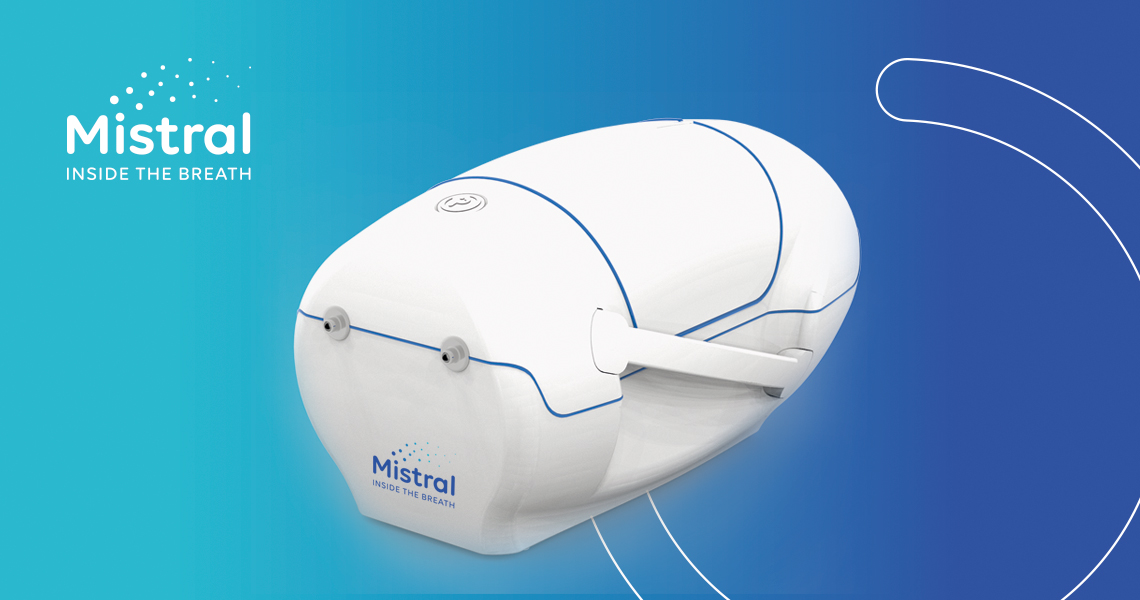“It is something that really works, hence it must be made available for anyone”. With these words, Vito Antonio Delvino, Director-General of Istituto Tumori “Giovanni Paolo II” of Bari, welcomed enthusiastically the institution of the Research Centre for the Breath Analysis and the launch of the sampler Mistral, developed by Predict within the framework of the applied research of the cluster “Inside the Breath”.”
The Centre, born as an initiative by Regione Puglia, is the first public organization in Europe that has focused its own activities around the analysis of the metabolites in the exhaled breath, with the aim of diagnosing cancers and many other pathologies. A result that, thanks to a multidisciplinary research characterised by a productive public-private collaboration, Mistral has already achieved with regard to the early diagnosis of the colorectal cancer.
The device is compact and smart, and allows to diagnose the onset of an oncologic pathology even at the very earliest stage by simply analyzing the exhaled breath of the patient, who has to simply blow inside a disposable mouthpiece. A perspective that seems to be futuristic yet absolutely real and tangible: to diagnose severe diseases at the earliest stage by only analysing the human breath.
It is for this reason that Agenzia Regionale Strategica per la Salute ed il Sociale (AReSS), together with the University of Bari Aldo Moro and Istituto Tumori “Giovanni Paolo II” (IRCCS), have founded this regional Centre for the Breath Analysis.
“The Centre – has announced Gianluigi de Gennaro (Professor of the Biology Department of University of Bari) – is born on the solid foundations of the Mistral prototype that is already prepared to face the market challenge”.
“Nevertheless – has clarified professor de Gennaro – the Centre for the Breath Analysis will have a lay approach with respect to the analysis methodology and it will be open to the implementation of all possible methods available in literature”. Differently, the only two European centres on the breath analysis (one in Cambridge, the other in Tel Aviv) are private and, in addition, they deal with developing a diagnostic technology they have themselves designed.
The Centre is innovative and experimental and it “is born within a territory – has said Gianmarco Surico, operations coordinator of Rete Oncologica Pugliese – that is amongst the areas with the highest cancer incidence in Italy”.
Giovanni Gorgoni, Director-General ARESS Puglia, has been advocating for an ad-hoc item of expediture within the Documento economico e finanziario of Sanità Pugliese (DIEF). “The Centre – has explained Dr. Gorgoni – will be coordinated by a “steering group” composed by the legal representatives of the three institutions, and by an experts committee with two members for each institution”.
The shared commitment is to act quickly.
Thanks to the studies of breathomics by Prof. de Gennaro and Prof. Donato Altomare, and to the public-private applied research that has led to Mistral, Apulia is today at the forefront of this fascinating branch of oncologic diagnosis.
By means of a “reliable, deep and intensive cooperation” between the three institutions (University of Bari, Regione Puglia and Istituto Tumori), and the private companies of the technological cluster, a huge scientific potential has been emerging and it can give hope to a significant number of patients.

